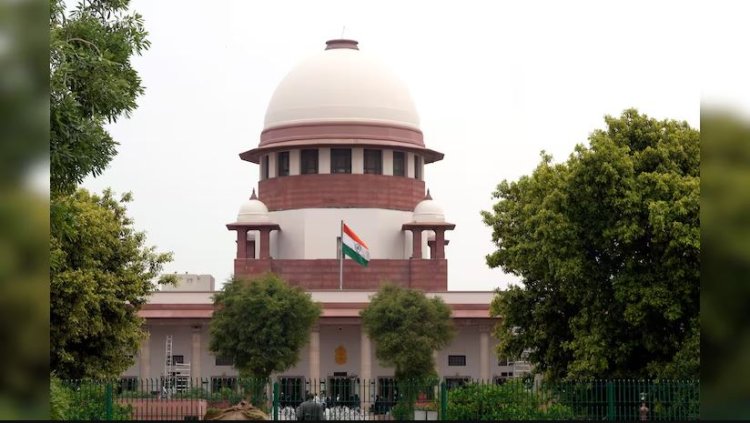New Delhi: State bar councils cannot charge exorbitant fees for enrolling law graduates as lawyers as it perpetuates "systemic discrimination" against marginalised and economically weaker sections, the Supreme Court ruled on Tuesday.
Stating that "dignity is crucial to substantive equality", the bench observed that state bar councils (SBCs) and the Bar Council of India (BCI) cannot "alter or modify" the fiscal policy laid down by Parliament.
They are users of delegated powers under the Advocates Act, 1961, a bench headed by Chief Justice D Y Chandrachud said, specifying that they cannot charge more than Rs 650 and Rs 125 for enrolling law graduates from the general and SC-ST categories, respectively.
The verdict, which was reserved on April 22, came on 10 pleas filed by some lawyers who claimed SBCs were levying exorbitant enrolment fees, and the counter pleas of some SBCs.
It was alleged that the enrolment fee is Rs 42,100 in Odisha, Rs 25,000 in Gujarat, Rs 23,650 in Uttarakhand, Rs 21,460 in Jharkhand and Rs 20,050 in Kerala in comparison to the fees of Rs 650 and Rs 125 provided under Section 24 of the Advocates Act.
"The SBCs and the BCI cannot demand payment of fees other than the stipulated enrolment fee and the stamp duty, if any as a precondition to enrolment, the bench, also comprising Justices J B Pardiwala and Manoj Misra, held.
Pronouncing the verdict, the CJI said, "The dignity of an individual encompasses the right of the individual to develop their potential to the fullest and the right to pursue a profession of one's choice and earn a livelihood. These are integral to the dignity of an individual."
Charging exorbitant enrolment fees and miscellaneous fees as a precondition for enrolment creates a barrier to entry into the legal profession, the court said.
"The levy of exorbitant fees of the precondition to enrolment serves to denigrate the dignity of those who face social and economic barriers in the advancement of their legal careers and this effectively perpetuates systemic discrimination against persons from marginalised and economically weaker sections by undermining the equal participation in the legal profession," the verdict said.
Holding the current enrolment fee structure as contrary to "the principle of substantive equality", the bench asked SBCs and the BCI to ensure that the fees does not defeat the law either directly or indirectly under the garb of different nomenclatures.
The bench, however, said the verdict will apply prospectively and SBCs are not required to refund the extra fees levied so far.
It also said that after enrolling law graduates as lawyers, the bar bodies may charge for other services being provided.
The verdict held, "The SBCs cannot charge enrolment fees beyond the express legal stipulation under Section 24 (1) (f) of the Advocates Act as it currently stands."
The provision lays down the fiscal precondition and the SBCs cannot demand payment of fees other than the stipulated enrolment fee and stamp duty, if any as a precondition to enrolment, it said.
"The decision of the SBCs to charge fees and charges at the time of enrolment in excess of the legal stipulation under Section 24 (1) (f) violates Articles 14 (right to equality) and 19, 1(g) (right to practice profession)of the Constitution," it said.
The bench also lauded the "good work" of SBCs and the BCI.
"We have said they (SBCs and the BCI) are independently entitled to charge for the work which they are doing for the legal profession and education," it said.
On April 10, the top court had issued notices to the Centre, the BCI and other SBCs on the pleas, saying had raised a significant issue.
The pleas alleged that charging "exorbitant" enrolment fees violated the legal provision and the BCI must step in to ensure it was not done. It was said that such high fees effectively deny enrolment to young aspiring lawyers who do not have the necessary resources.



